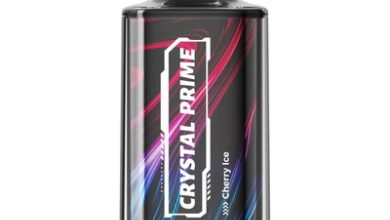THC-O, a Psychedelic Cannabinoid

What is THC-O?
THC-O is the acetate ester form of THC, sometimes called THC acetate ester, or O-acetyl-Δ9-THC. It’s usually known as THC-O acetate (or ATHC or THC-Oa) among experts, but has been shortened by almost everyone to THC-O. Sometimes people drop the hyphen and call it thco disposable or THC O. However you decide to spell it, it’s pronounced “THC-oh”—that’s the letter O, not a zero.
Like delta 10 THC and the other hemp-derived cannabinoids on the market, THC-O is chemically almost identical to delta 9 THC, the intoxicating compound that dominates marijuana plants. And its effects are very similar to delta 9, but because it binds more tightly to the body’s cannabinoid receptors than the other THC forms, THC-O is more intoxicating than delta 8, delta 10 or HHC—and is even stronger than delta 9 THC or thc o vape (more on that below).
THC-O is available in all the usual cannabis styles: vapes, oils, edibles and flower. THC-O vape carts and disposable vapes are sold with either unflavored distillate or with added terpenes for flavor. THC-O is also mixed with edible oils like MCT to make tinctures for oral use. There are THC-O edibles available too, including gummies and chocolates. Finally there is “THC-O flower,” which is simply hemp flower infused with THC-O.
THC-O Acetate linked to severe lung disease
Benowitz and coworkers published a public health warning in the Journal of Medical Toxicology about the potential for inhaled delta-8 THC-O-acetate (THC-O) to cause lung injury, similar to that seen in the EVALI epidemic in 2019. The lung injury seen in EVALI cases is believed to have been largely caused by inhalation of delta-9 THC oil containing vitamin E acetate (VEA), used a diluent. When heated, the acetate moiety of VEA is converted to ketene, a highly potent lung toxicant, similar in action to phosgene.
THC-O, a psychoactive cannabinoid, can be synthetized from cannabidiol which is legally available in hemp products. THC-O was identified in a cannabis product purchased over the internet. Mathematical calculations of the energy required to convert THC-O to ketene confirmed that this could occur at the temperatures seen with cannabis vaporizers (“vaping”). Another independent research team has confirmed that vaping THC-O can produce ketene.
The authors encourage education of cannabis users not to use THC-O, and health care providers to consider THC-O in evaluating lung injury in people who using cannabis vaporizer products.
THC-O acetate products have recently become popular due to claims that they produce stronger psychoactive effects than traditional marijuana and uncertainty about their legal status in the United States.
However, a new study published in the Journal of Medical Toxicology has revealed potential health risks associated with these products and warned that they might lead to another outbreak of EVALI, similar to the one that occurred in 2019, which caused 68 deaths and 2,807 hospitalizations.
THC-O acetate is one of the newest products resulting from the 2018 Farm Bill, which indirectly legalized the cultivation of hemp.
The bill has resulted in the production of products containing non-intoxicating cannabinoids such as CBD and GBG or full-spectrum cannabinoid-based products with a THC level below 0.3% by some companies. However, other companies have also processed non-intoxicating hemp compounds to create chemical compounds with psychoactive effects that are milder than THC, such as delta-8 THC, or even stronger, like in the case of THC-O acetate.




